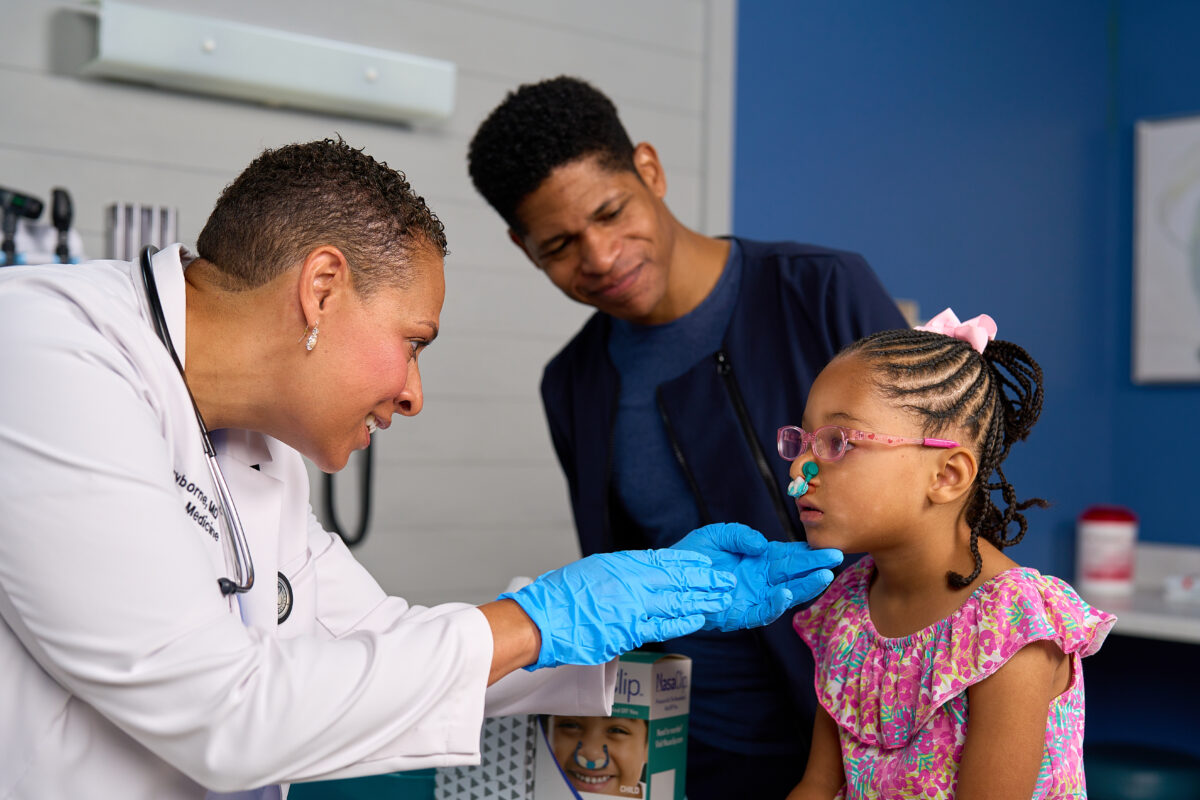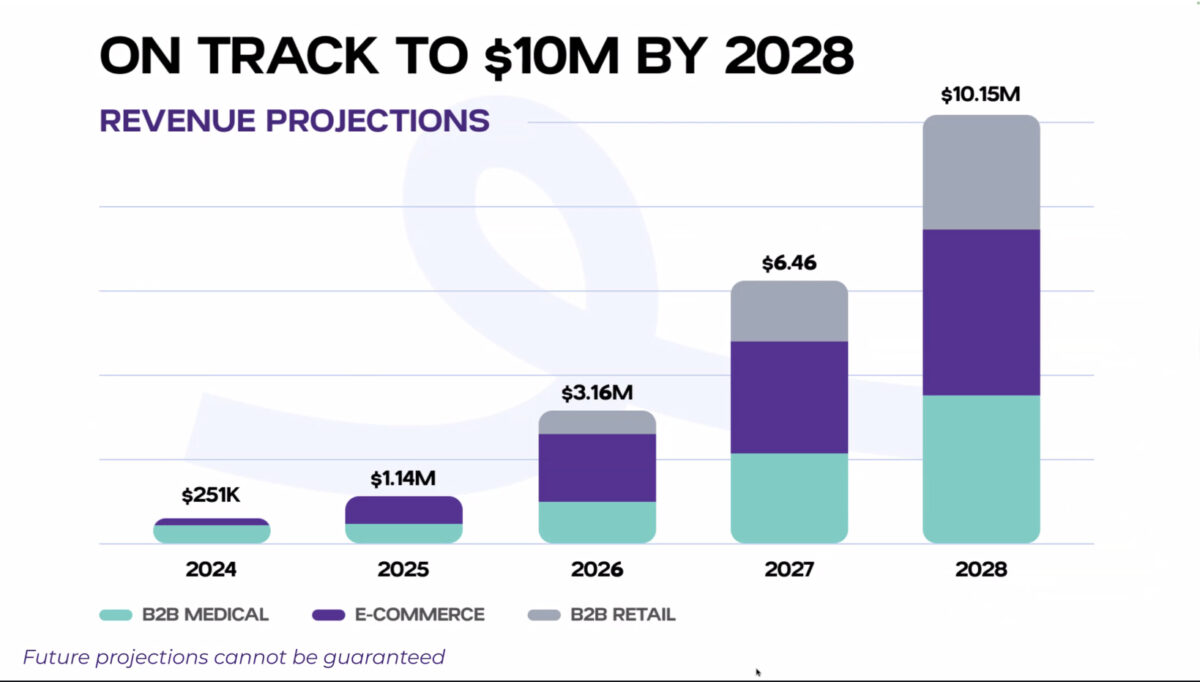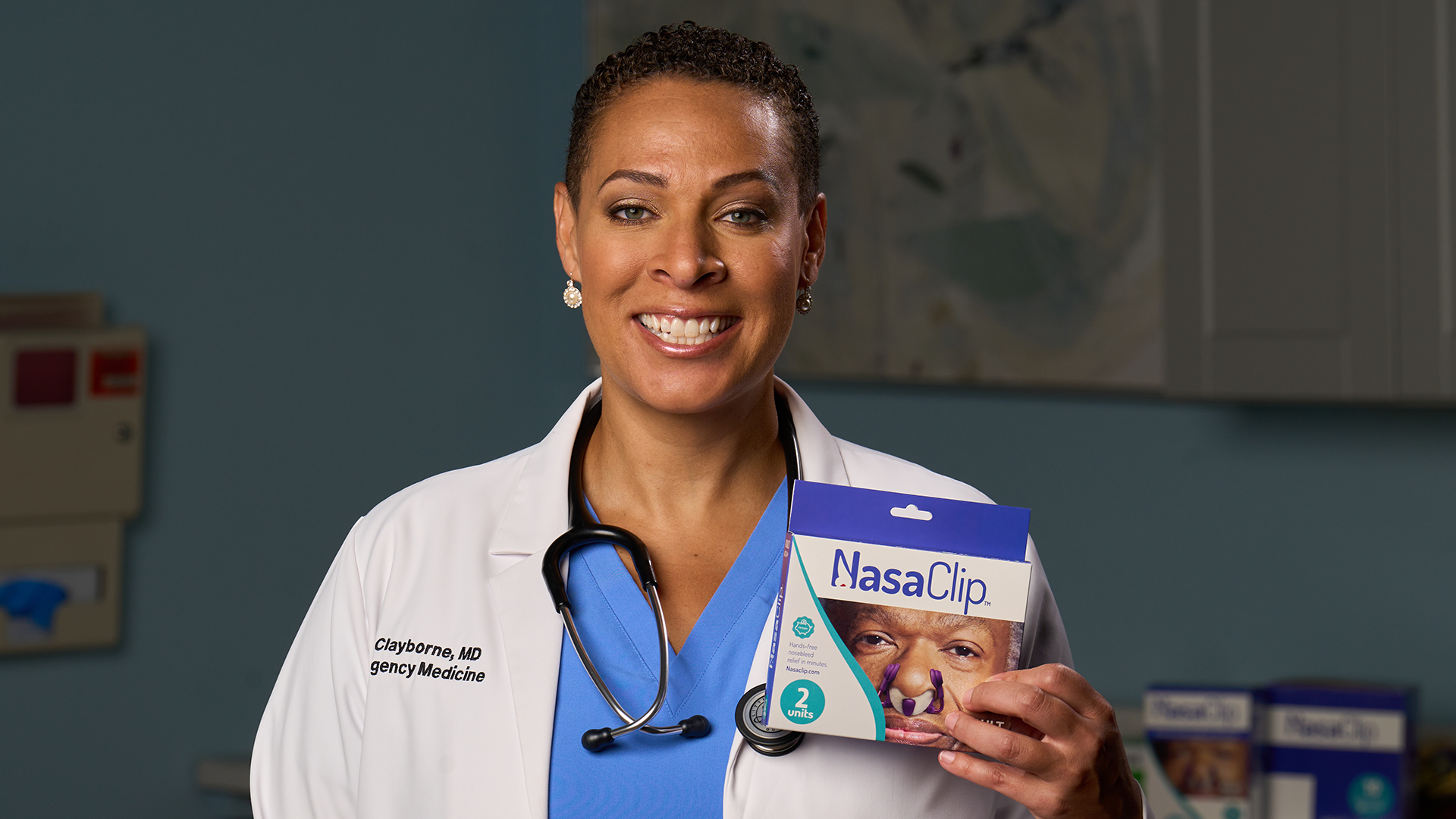Dr. Elizabeth Clayborne is gaining traction in the investment world for her medical device known as the “Band-Aid for nosebleeds.”
As AFROTECH™ previously reported, Dr. Clayborne is the founder of NasaClip, which was inspired by her time in residency in Washington, DC. Various patients were coming into the emergency room for an issue professionals in the medical field described as a “lower acuity issue.”
“Nosebleeds are most common in kids age 2 to 10, older adults 55 to 80, who might be on blood thinners, it’s really the least likely population to manage it well. So when they can’t get that bleeding to stop, they show up to me in the ER, and they want me to treat them right away. They’re bleeding all over the waiting room demanding to be seen. But for us as ER docs, this is a lower acuity issue, but it happens to be really kind of time-consuming and cumbersome to deal with,” she said over a Zoom webinar held on Oct. 31, 2024.
She continued, “I was frustrated as a resident. Often what I was doing is taping together two tongue depressors to make a clip and MacGyvering together these other solutions. And I’m like, ‘How is there not a device that just helps people apply pressure and can take care of nosebleeds in any environment?’ So that is what NasaClip is. It is my physician-designed compression device that has intranasal sponges that can be medicated.”

$2.6M Raised In Crowdfunding Via Wefunder
Clayborne is currently raising investment through a crowdfunding round on Wefunder. The funding will help NasaClip break even, become a profitable business, and position the company for a Series A round.
At the time of this writing, $2.5 million has been raised from more than 30 community investors for NasaClip. Additionally, the company has secured $60,000 in funding under two weeks through a crowfunding campaign via Wefunder.
Furthermore, the company has achieved quarter-over-quarter growth and is projected to reach $1.14 million in revenue by 2025, with potential to hit $10.15 million by 2028. According to Clayborne, this growth is being driven by expansion on Amazon and ambitions to land in major retailers such as Walgreens, CVS, Target, and Walmart.

Reflecting on the crowdfunding round, which seeks to reach $4 million, Clayborne told AFROTECH™ in the Zoom, “We are doing the Wefunder campaign at this time because we are really excited about having these smaller investors be able to evangelize the NasaClip brand. So a lot of times crowdfunding, I think, is successful when you have a consumer medical device or something that’s tangible with a simple problem and a solution that people can buy. And we thought that with the Amazon launch that we’re about to undertake, this is a perfect time to open it up to our friends and family, and then eventually the public to invest in NasaClip and be on this journey for us.”
She also highlighted the difficulties Black women entrepreneurs face while seeking startup funding, although she is hopeful about a community raise. Chase Bank reports 61% of Black women entrepreneurs will opt for self-funding due to difficulties in obtaining funding, and just 2% of venture capital is given to U.S. startup or business founding teams led by women.
“It is an uphill battle to fundraise, and a lot of times in early fundraising what they expect you to do is raise from your friends and family. But they can’t do that on typical Reg D regulations unless they’re an accredited investor. That excludes a lot of people that may wanna participate and benefit from being an investor. So I’m just so thrilled that a lot of members of my own family who are investing wanted to invest early on couldn’t, and now with this crowdfunding platform and using Wefunder, we’re giving access to everybody and that kind of equity is important to me,” she expressed.
What’s Next
Looking ahead, NasaClip plans to expand its product’s reach beyond the medical market to homes, schools, and office spaces. It is already gaining significant traction within the cruise industry, with Disney cruise ships and parks among its returning customers.
One of the most exciting developments for the company is its transition toward functioning as a drug delivery platform, with plans to seek funding for these efforts in 2025. Since NasaClip’s sponges can deliver other intranasal medications, this opens the door to more effective drug administration options, including Naloxone, an opioid reversal agent.
“This is a medication that’s typically delivered by police or EMS in the field or even a bystander with a nasal spray,” she explained. “But what I’m seeing as an ER doc is that because these drugs are stronger, they’re often laced with fentanyl and other really strong opioids. We have to redose the Narcan (brand name of Naloxone) a lot. We have to give them multiple doses to get any kind of reaction and response. I think that the NasaClip putting the medication on the sponges that go in the nose and then applying external pressure will be a more effective way to deliver those medications. So we’ll be specifically exploring that with Naloxone and Midazolam, a benzodiazepine that helps with seizure and alcohol withdrawal, this next year, and then that will open up the $43 billion drug delivery market that we hope to branch into in the coming years.”

















